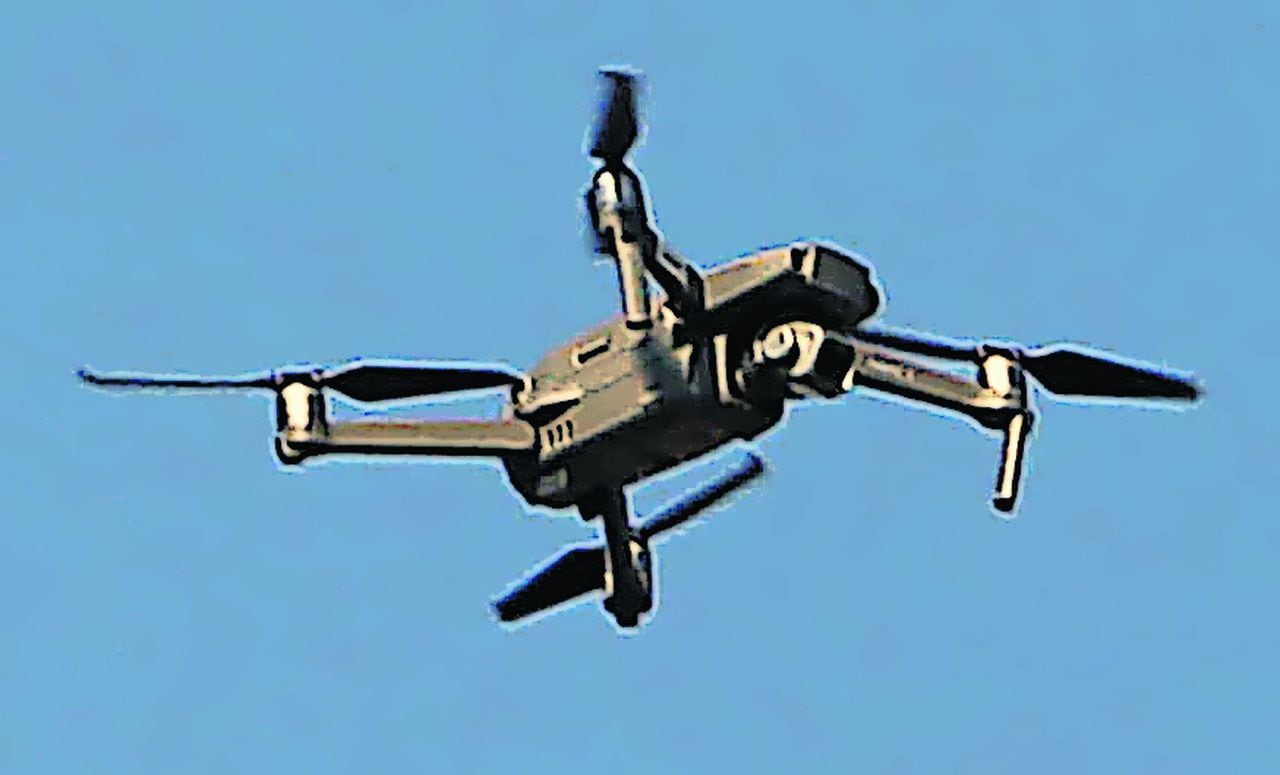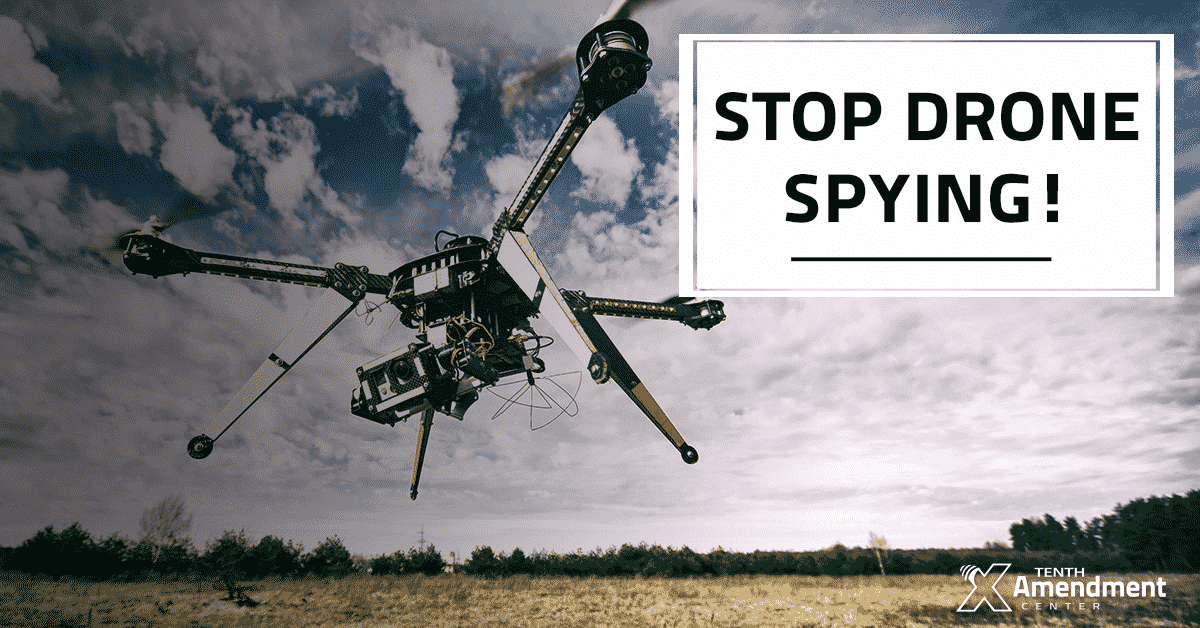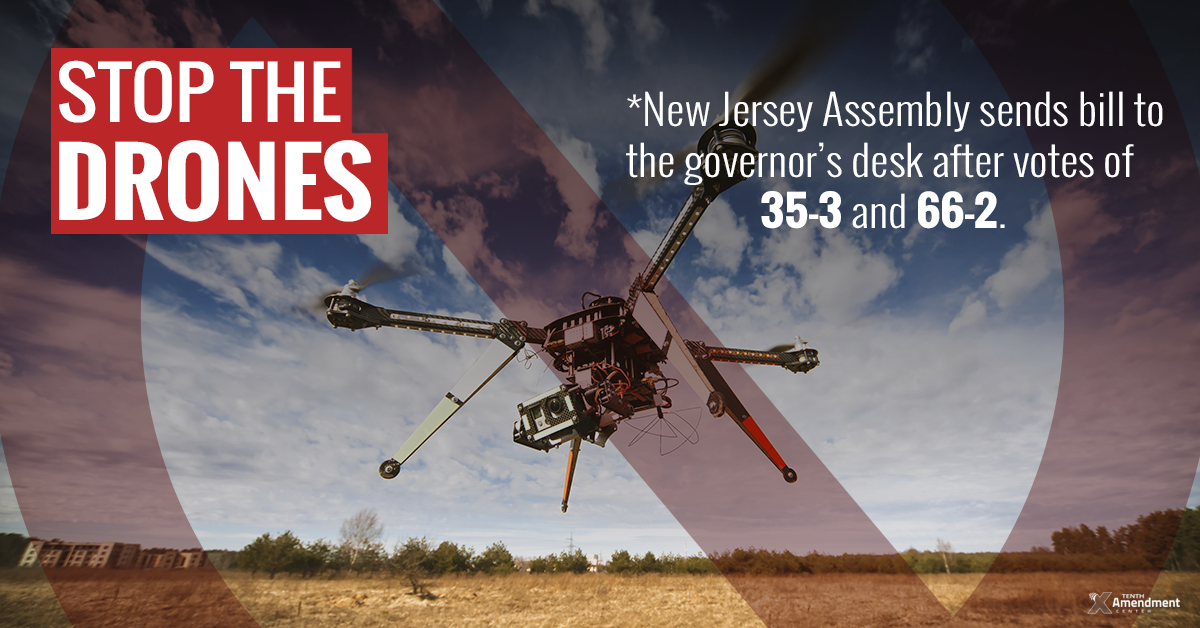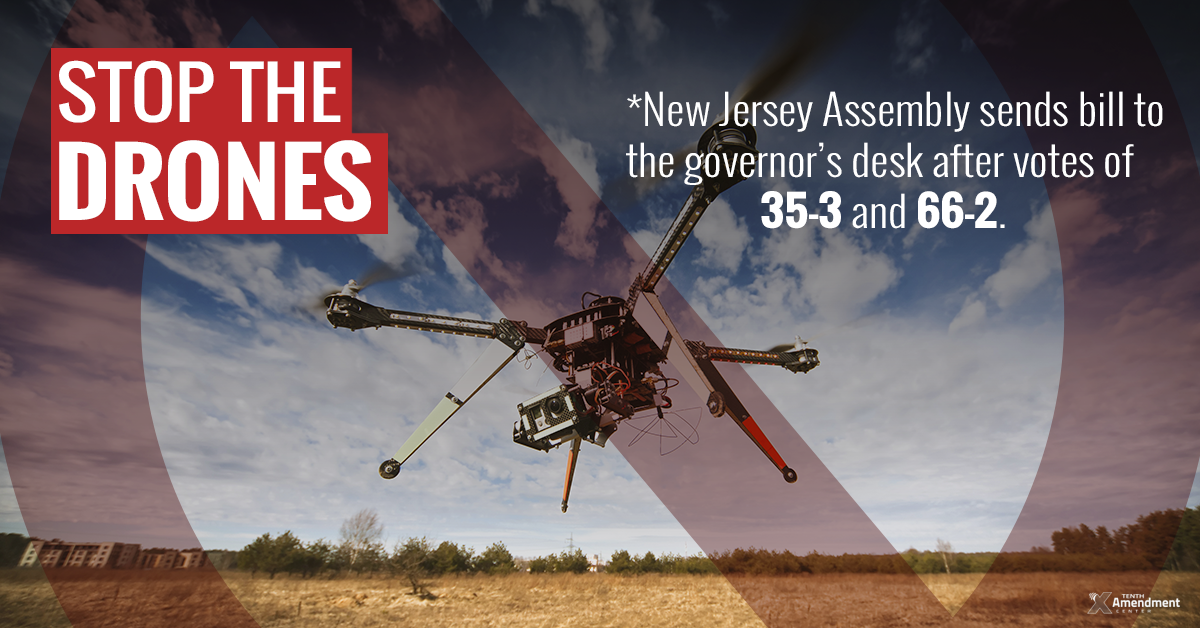Drones Over New Jersey Solved unravels the complex tapestry of drone regulations, incidents, and public perception within the Garden State. This exploration delves into the legal framework governing drone operation, examining both the successes and challenges encountered. We’ll analyze significant drone-related events, highlighting the diverse applications of this technology—from law enforcement to infrastructure improvements—and the evolving public discourse surrounding its use.
From analyzing New Jersey’s specific drone laws and comparing them to neighboring states, to investigating the public’s varied opinions on drone integration, this comprehensive overview aims to provide a balanced perspective on the current state of drone technology and its future trajectory in New Jersey. We will consider both the benefits and potential drawbacks, including privacy concerns and the need for responsible drone operation.
Drone Regulations in New Jersey
New Jersey, like many states, has specific regulations governing the operation of drones. These laws aim to balance the innovative potential of drone technology with public safety and privacy concerns. Understanding these regulations is crucial for both recreational and commercial drone users.
Current Drone Laws and Regulations in New Jersey
New Jersey’s drone regulations primarily align with federal regulations established by the Federal Aviation Administration (FAA). This includes registration requirements for drones weighing over 0.55 pounds, limitations on flight altitudes and proximity to airports, and restrictions on flying over crowds or critical infrastructure. Specific state laws may further restrict drone operations in certain areas, such as state parks or near sensitive government facilities.
Operators must maintain visual line of sight with their drone at all times, unless operating under specific exemptions or waivers.
Comparison with Neighboring States

A comparison of New Jersey’s drone laws with those of neighboring states reveals a general consistency in adhering to federal FAA guidelines. However, specific state-level regulations may vary. For example, some neighboring states may have more stringent rules regarding drone operation near sensitive areas or specific licensing requirements for commercial drone operators. Detailed comparisons would require an in-depth analysis of each state’s individual statutes and regulations.
Penalties for Violating Drone Regulations

Violating New Jersey’s drone regulations can result in a range of penalties, from warnings and fines to more serious legal consequences, depending on the severity of the infraction. These penalties can include hefty fines, license suspension or revocation for commercial operators, and even criminal charges in cases involving reckless or intentional misconduct. The FAA also has its own enforcement mechanisms, potentially leading to separate federal penalties.
Summary of Key Aspects of New Jersey Drone Laws
| Aspect | Regulation | Penalty | Notes |
|---|---|---|---|
| Registration | Required for drones over 0.55 lbs (FAA) | Fines, potential legal action | Complies with federal regulations. |
| Flight Altitude | Limited to 400 feet (FAA) | Fines, potential legal action | Exceptions may apply with FAA waivers. |
| Line of Sight | Visual line of sight required | Fines, potential legal action | Exceptions for specific operations with FAA waivers. |
| Restricted Airspace | Prohibited near airports, sensitive areas | Fines, potential legal action | Specific restrictions vary by location. |
Incidents Involving Drones in New Jersey
Several incidents involving drones have been reported in New Jersey, highlighting the need for responsible drone operation and effective regulations. These incidents underscore the potential risks associated with improper drone use and the importance of adhering to existing laws.
The recent drone activity over New Jersey has been resolved, thankfully avoiding any major incidents. This highlights the importance of reliable real-time monitoring, similar to the capabilities offered by a system like the coquihalla weather camera , which provides crucial visual data for various purposes. The New Jersey situation underscores the need for advanced surveillance technology to ensure public safety and efficient response to unexpected aerial events.
Notable Drone Incidents in New Jersey
- 2019: A drone was reported flying near Atlantic City International Airport, prompting an investigation by the FAA and local law enforcement. The operator was identified and received a warning.
- 2021: A drone was used to illegally film a private event, leading to a lawsuit and a court order prohibiting further unauthorized drone flights.
- 2023: A drone malfunction caused a minor property damage incident in a residential area. The operator was found to have violated safety guidelines, resulting in a fine.
The types of drones involved in these incidents varied, ranging from small recreational drones to larger, more sophisticated models used for commercial purposes. The details surrounding each incident, including the specific locations and outcomes, are available through news reports and official records.
Law Enforcement Use of Drones in New Jersey
Law enforcement agencies in New Jersey increasingly utilize drones for various purposes, enhancing their capabilities in public safety and investigations. However, the use of drones by law enforcement raises important considerations regarding privacy and accountability.
Law Enforcement Drone Applications
New Jersey law enforcement agencies employ drones for tasks such as search and rescue operations, crime scene investigations, traffic monitoring, and surveillance. Drones offer advantages in terms of aerial perspective, cost-effectiveness, and reduced risk to officers in hazardous situations. However, limitations include factors like weather conditions, battery life, and the need for skilled operators.
Benefits and Limitations of Law Enforcement Drones
The benefits include enhanced situational awareness, improved response times, and the ability to gather crucial evidence. Limitations include potential privacy violations, technological malfunctions, and the need for clear legal frameworks governing their use.
Privacy Concerns Associated with Police Drone Usage
The use of drones by law enforcement raises significant privacy concerns. The ability to conduct surveillance from the air without readily apparent observation could lead to violations of individuals’ Fourth Amendment rights. Strict regulations and transparency are crucial to mitigate these risks.
Hypothetical Scenario: Responsible Law Enforcement Drone Use
Imagine a scenario where a missing child is reported in a wooded area. A law enforcement drone, equipped with thermal imaging, is deployed to search the area. The drone’s operator adheres to strict protocols, ensuring the flight remains within legal boundaries and respects privacy rights. The drone locates the child, and the information is relayed to ground units for a safe rescue.
This illustrates how responsible drone use can significantly enhance public safety.
Recent concerns regarding unauthorized drone activity over New Jersey appear to be resolved, thanks to swift action by local authorities. Understanding the reasons behind these incidents often involves investigating past issues, such as those detailed in this report on drone crashes in New Jersey , which helps pinpoint potential causes and preventative measures. With these lessons learned, a safer airspace over New Jersey is now being actively maintained.
Public Perception of Drones in New Jersey
Public opinion regarding drones in New Jersey is complex and multifaceted, varying across different demographic groups. While many recognize the potential benefits, significant concerns regarding privacy and safety persist.
Public Opinions on Drone Use
Surveys and public discussions reveal a range of opinions. Some view drones as valuable tools with applications in various sectors, while others express apprehension about potential misuse, surveillance, and the loss of privacy. Age, technological literacy, and prior experiences with drones influence these perspectives.
Common Concerns and Anxieties
Common concerns include potential misuse for surveillance, invasion of privacy, noise pollution, and safety risks associated with drone malfunctions or accidents. Anxieties also exist about the lack of clear regulations and the potential for drones to be used for malicious purposes.
Visual Representation of Public Opinion
A pie chart could effectively illustrate the distribution of public opinion. For example, one segment might represent those who view drones positively, emphasizing their benefits. Another segment would depict those with concerns about privacy, and a third segment might represent those who are neutral or undecided. The sizes of the segments would reflect the proportion of each viewpoint based on hypothetical survey data.
Drone Technology and its Impact in New Jersey: Drones Over New Jersey Solved
Advancements in drone technology are creating new opportunities for innovation and economic growth in New Jersey. Drones are increasingly used in various sectors, offering efficient and cost-effective solutions.
Advancements in Drone Technology and Applications
Recent advancements include improved battery life, enhanced sensors and cameras, autonomous navigation capabilities, and integration with AI. These advancements are transforming drone applications in areas such as infrastructure inspection, precision agriculture, delivery services, and emergency response.
Drone Technology’s Impact on Infrastructure, Agriculture, and Emergency Response
Drones can efficiently inspect bridges, power lines, and other infrastructure, reducing the need for costly and time-consuming manual inspections. In agriculture, drones are used for crop monitoring, spraying pesticides, and precision planting. In emergency response, drones can provide aerial surveillance, deliver medical supplies, and assist in search and rescue operations.
Economic Impact of Drone Technology, Drones over new jersey solved
The drone industry is creating new jobs in manufacturing, software development, operation, and maintenance. The economic benefits extend to various sectors, improving efficiency and productivity while generating revenue through innovative applications.
Innovative Drone Applications in New Jersey
Examples include companies using drones for bridge inspections, real estate photography, and agricultural monitoring. Research institutions are exploring the use of drones for environmental monitoring and wildlife conservation.
Future of Drones in New Jersey
The future of drones in New Jersey promises continued growth and innovation, but responsible development and regulation are essential to maximize benefits while mitigating risks.
Future Trends and Developments
We can expect further advancements in autonomous flight, increased integration with AI, and the development of more specialized drones for specific applications. The use of drones in urban environments is likely to increase, requiring careful consideration of airspace management and safety protocols.
Challenges and Opportunities for Drone Integration

Challenges include addressing public concerns about privacy, ensuring safe integration into existing airspace, and establishing clear regulatory frameworks. Opportunities lie in developing innovative applications, fostering economic growth, and enhancing public safety and efficiency.
Recommendations for Responsible Drone Usage
Recommendations include promoting public education on safe and responsible drone operation, strengthening regulatory frameworks to address privacy concerns, and investing in research and development to advance drone technology.
Potential Future Legislation or Regulatory Changes
Future legislation may focus on clarifying liability issues, addressing privacy concerns, and streamlining the regulatory process for commercial drone operations. Collaboration between government agencies, industry stakeholders, and the public is essential to shape a future where drones are used safely and responsibly.
The integration of drones into New Jersey’s landscape presents both remarkable opportunities and significant challenges. Understanding the legal framework, addressing public concerns, and fostering responsible use are crucial for harnessing the transformative potential of drone technology. As technology advances and regulations evolve, continued dialogue and proactive measures will be essential to ensure the safe and beneficial integration of drones within the state.
The future of drones in New Jersey is one of careful consideration and collaborative progress, paving the way for innovation while prioritizing safety and public trust.
General Inquiries
What types of drones are most commonly used in New Jersey?
A variety of drones are used, ranging from small consumer models for recreational purposes to larger, more sophisticated commercial and law enforcement drones capable of carrying specialized equipment.
Are there specific areas where drone flight is prohibited in New Jersey?
Yes, flight restrictions apply near airports, sensitive infrastructure (e.g., power plants), and certain public events. Consult the FAA’s B4UFLY app for up-to-date information on airspace restrictions.
How can I obtain a permit or license to operate a drone commercially in New Jersey?
Commercial drone operation requires a Part 107 Remote Pilot Certificate from the FAA. Additional permits or approvals might be necessary depending on the specific operation and location.
What resources are available for learning more about New Jersey drone laws?
The FAA website, the New Jersey State Police website, and legal professionals specializing in aviation law are good resources for detailed information.
